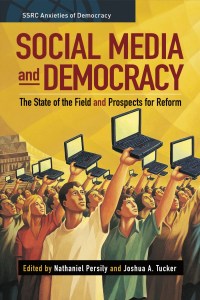 The world slid into a new crisis last week and for once COVID-19 was not to blame, notes a SecDev Special Dispatch. Over a 48 hour period the US government issued three separate measures – two executive orders sanctioning WeChat and TikTok and a new clean network program – that could set off a dangerous chain reaction. The implications could be far more consequential, threatening the foundations of a free and open internet, strengthening the hand of authoritarian governments, and hastening the unravelling of economic interdependencies that powered the most successful half century in human history, it adds:
The world slid into a new crisis last week and for once COVID-19 was not to blame, notes a SecDev Special Dispatch. Over a 48 hour period the US government issued three separate measures – two executive orders sanctioning WeChat and TikTok and a new clean network program – that could set off a dangerous chain reaction. The implications could be far more consequential, threatening the foundations of a free and open internet, strengthening the hand of authoritarian governments, and hastening the unravelling of economic interdependencies that powered the most successful half century in human history, it adds:
By enacting these three measures, the US government is terminating its long-standing role as guarantor of a free, interoperable, neutral, global internet. ….. Although the lawyers have a few weeks to decipher the new measures, the end result is that they could criminalize any use of social media and telecommunications equipment, including 5G infrastructure, connected to China. It is conceivable that the new regulations would apply not just to the transactions of US citizens and firms, but to potentially everyone, everywhere. Although comprehensively enforcing these regulations will be virtually impossible and legal challenges are already underway, the damage is already reverberating.
 There are three major considerations to consider, adds SecDev, a digital risk consultancy that helps clients prepare for, respond to, and build resilience against digital disruption:
There are three major considerations to consider, adds SecDev, a digital risk consultancy that helps clients prepare for, respond to, and build resilience against digital disruption:
-
The future of a free and open internet is at stake. Since the birth of the commercial Internet in 1989, the US and a coalition of like-minded states have been at the forefront of keeping it open and interoperable. This approach was not always welcomed by others. For example, countries such as China and Russia called for more national oversight and restrictions on the governance of the internet, including via the United Nations’ Group of Governmental Experts (GGE). ….
-
Blowback from China could undermine a return to growth. China will step up its international political and economic pressure in the coming months. The executive order against Tik-Tok and WeChat comes on the heels of an on-going feud surrounding Huawei’s role in building 5G infrastructure globally. China is unlikely to sit idly by and may use its increasing global reach by engaging allies across Asia and Africa to enact reciprocal laws and restrictions making it difficult for western corporations to operate abroad.
-
Growing friction increases geopolitical risk. For at least three decades the Internet has lubricated the wheels of globalization. With the selective targeting of some of the world’s largest tech firms, that’s now at risk. For corporations that have established just-in-time supply chains on the expectation of borders becoming less relevant, now the reality of border walls in cyberspace could force them to reconsider their digital supply chains from the devices they use to the software that runs on them. Techno-nationalism will negatively impact commercial relations (and social interaction) just about everywhere. The digital dimensions of geopolitics are more in flux than ever.
 On Tuesday September 8, 2020 9:00 AM – 1:00 PM, PT, Stanford’s Cyber Policy Center hosts a discussion of Social Media and Democracy: The State of the Field and Prospects for Reform. Download the final chapter here, which details the legal barriers preventing access to key social media datasets, and the ethical quandaries surrounding analyses of such data.
On Tuesday September 8, 2020 9:00 AM – 1:00 PM, PT, Stanford’s Cyber Policy Center hosts a discussion of Social Media and Democracy: The State of the Field and Prospects for Reform. Download the final chapter here, which details the legal barriers preventing access to key social media datasets, and the ethical quandaries surrounding analyses of such data.
Speaker(s), including several associates of the National Endowment for Democracy (NED): Nathaniel Persily, Andrew Grotto, Daphne Keller, Andrew Guess, Benjamin Lyons, Pablo Barabera, Alexandra Siegel, Samuel Woolley, Erika Fowler, Michael Franz, Travis Ridout, Richard Fletcher, Chloe Wittenberg, Adam Berinsky, Francis Fukuyama, Paddy Leerssen, Tim Hwang, Robert Gorwa, and Timothy Garton Ash. REGISTER & RTWT







